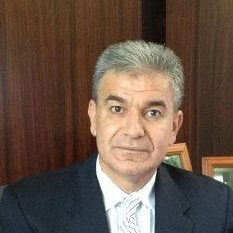In March 2019, the World Bank and several other development organizations launched “Stand For Her Land,” a global advocacy campaign that aims to realize women’s equal access to land and properties worldwide. Let me share with you why this is important.
For more than 25 years, the World Bank supported over 50 countries in reforming land and property registration systems through modernizing laws and regulations, strengthening institutions, and issuing titles for all properties to lawful land owners. They often use land titles to access credit to improve their land and dwellings – and expand businesses or open new ones, generating jobs, boosting productivity, and increasing incomes. Furthermore, research has shown that secure land and property rights provide incentives for people to invest in agricultural land.
Although such programs are implemented to benefit all of society, several governments are aware of certain societal norms, which, in specific situations, do not include women on the land title. Across 10 countries in Africa, for instance, only 12% of women, compared to 31% of men, report owning land individually. Countries outside Africa reveal similar patterns in the percentage of land owned solely by women.
Take Vietnam as an example. In the early 1990s, most land use certificates were issued in the name of a man alone, because the space on the paper title deed was not enough for two names. The government of Vietnam quickly recognized this problem. They adjusted the law to make sure land titles were issued in the names of both husband and wife and changed the form to allow for two names. As a result, more than 60% of titles issued during a World Bank-supported project were in the name of a women or in the names of husband and wife.
Lao PDR did the same. To ensure women’s land and property rights, the government of Laos partnered with the Lao Women’s Union in a title registration process, whereby women could explain to other women their rights to ensure they register their land in their names if the land was inherited from their family – or register together with the husband if property was acquired during marriage.
Unfortunately, in many parts of the world, realizing women’s land rights remains a challenge. While laws in most countries allow joint ownership of properties, men often register land and property in their names alone, even though women contribute to the financing of the purchased property. Women often lose almost everything in case of death of the husband or in case of a divorce. They are often forced out of their homes. I wrote about Fatima, who lost her husband and house during the 2014 conflict in Gaza. Sadly, there are thousands and thousands of women around the world like Fatima that suffer the same fate every year.
Another problem in many societies is that women do not receive their right to land and property inheritance, despite existing laws including Sharia Islamic law, which clearly defines the right of women to inheritance. In many cases, brothers force their sisters to waive their inheritance rights so that “the land stays in family hand.” While we do not yet have the percentage of families that force their daughters to waive their rights, anecdotal evidence indicates it is high. The World Bank will undertake very detailed research over the next few months to understand the extent of this problem in the Arab countries.
There are many more stories around the world about women being kicked off of their land because they are the vulnerable part in society, especially when they do not have documentation of their ownership. In many places, the legal system is either indifferent or costly, and could easily be influenced by political or economic elites.
The “Stand For Her Land” campaign is an important step to draw attention to the critical issue of women’s land rights. From our research at the World Bank, access to assets, including land and property, is one of three important pillars of women’s empowerment. In addition to the global campaign, we will undertake regional and country-level campaigns to draw attention to this important issue. Furthermore, almost all of World Bank-supported projects on land administration and registration will include assessments to identify constraints, and actively implement activities to ensure women get their full rights in registering properties, including joint titles and inheritance rights. The outcome, I hope, is increased awareness of women land rights, as well as changes in laws and practice that ensure women exercise their full land and property rights.
Clearly, we can’t do this alone. We would like to enlist as many people as possible in championing this important agenda. If you are interested, please register your name to become a champion of women’s land rights. If you have a story and you would like to share it, please write or record it and share it on social media using hashtag #Stand4HerLand.
Visit stand4herland.org to learn more about the “Stand For Her Land” campaign.
READ MORE:
- Blog series women's land rights
- Press release: Women in Half the World Still Denied Land, Property Rights Despite Laws
- Topic brief: Land
- Subscribe to our Sustainable Communities newsletter
- Follow @WBG_Cities on Twitter




Join the Conversation